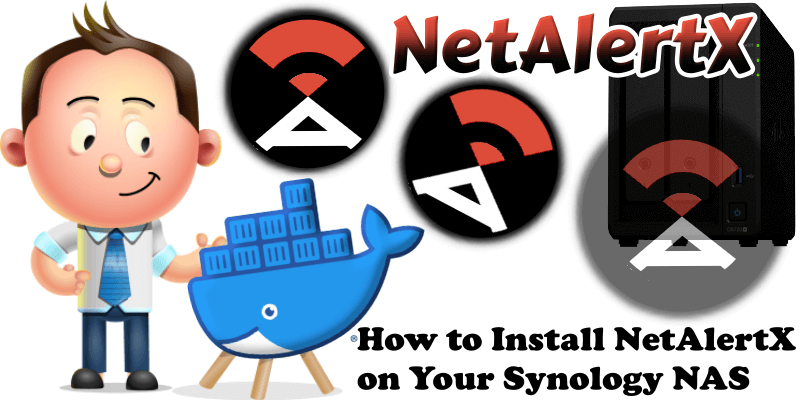
NetAlertX, formerly Pi.Alert, is an advanced Docker application that scans for devices connected to your WIFI/LAN and alerts you if new and unknown devices are found. The system continuously scans the network for new devices, new connections (re-connections), disconnections, “always connected” devices down, devices IP changes and Internet IP address changes. In this step by step guide I will show you how to install NetAlertX on your Synology NAS using Docker & Portainer. 🚀Note: At the beginning of April 2024, Pi.Alert changed its name to NetAlertX.
STEP 1
Please Support My work by Making a Donation.
STEP 2
Install Portainer using my step by step guide. If you already have Portainer installed on your Synology NAS, skip this STEP. Attention: Make sure you have installed the latest Portainer version.
STEP 3
Go to File Station and open the docker folder. Inside the docker folder, create one new folder and name it netalertx. Follow the instructions in the image below.
Note: Be careful to enter only lowercase, not uppercase letters.
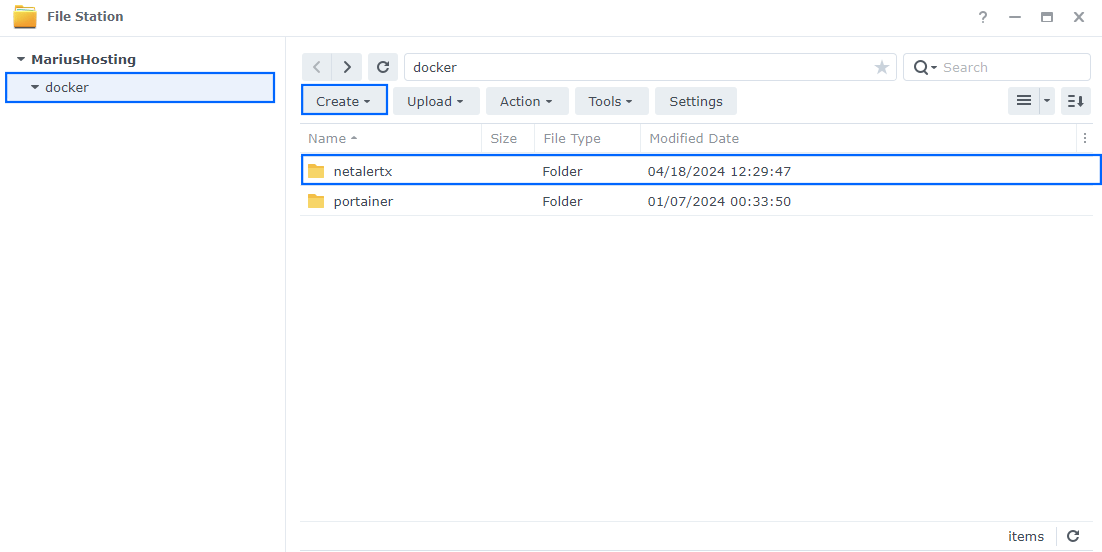
STEP 4
Now create one new folder inside the netalertx folder that you have previously created at STEP 3 and name it data. Follow the instructions in the image below.
Note: Be careful to enter only lowercase, not uppercase letters.
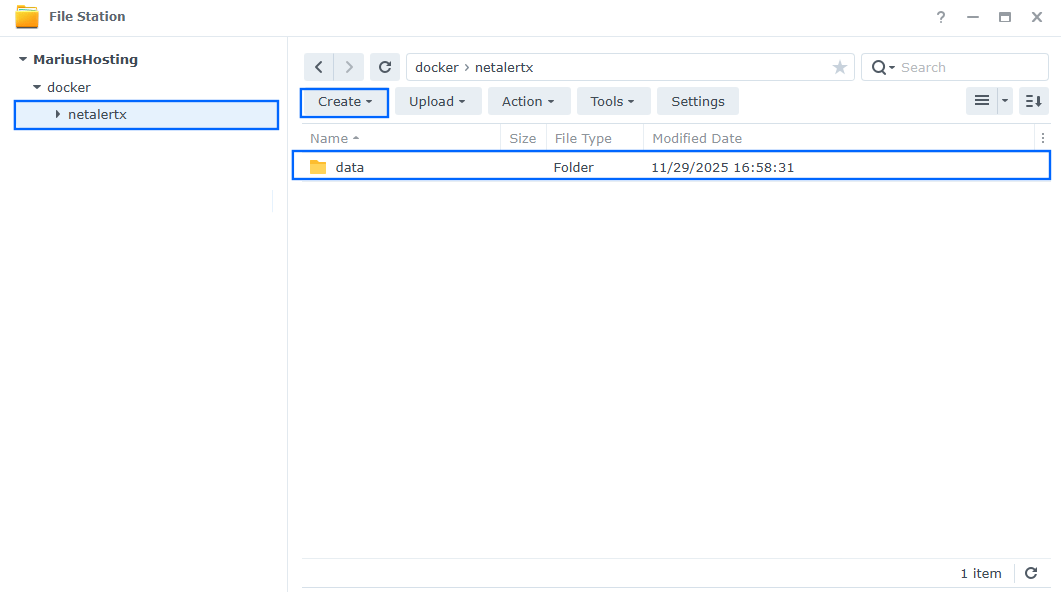
STEP 5
Now create one new folder inside the data folder that you have previously created at STEP 4 and name it db. Follow the instructions in the image below.
Note: Be careful to enter only lowercase, not uppercase letters.
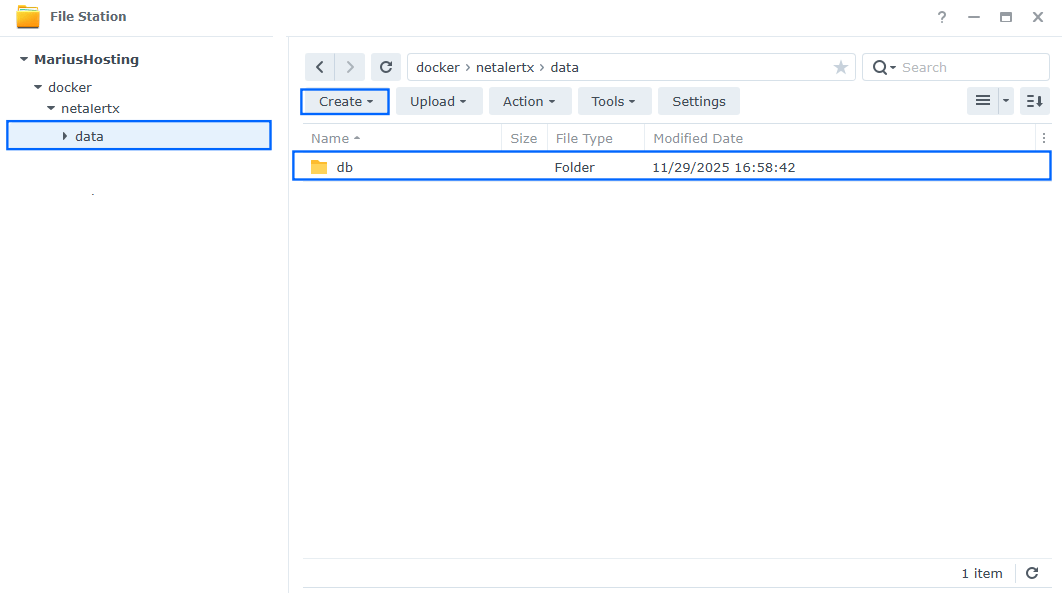
STEP 6
Log into Portainer using your username and password. On the left sidebar in Portainer, click on Home then Live connect. Follow the instructions in the image below.

On the left sidebar in Portainer, click on Stacks then + Add stack. Follow the instructions in the image below.

STEP 7
In the Name field type in netalertx. Follow the instructions in the image below.
services:
netalertx:
image: ghcr.io/jokob-sk/netalertx:latest
container_name: NetAlertX
healthcheck:
test: curl -f http://localhost:20211/ || exit 1
network_mode: host
read_only: true
cap_drop:
- ALL
cap_add:
- NET_RAW
- NET_ADMIN
- NET_BIND_SERVICE
- CHOWN
- SETUID
- SETGID
volumes:
- /volume1/docker/netalertx/data:/data:rw
- /etc/localtime:/etc/localtime:ro
tmpfs:
- /tmp:uid=${NETALERTX_UID:-20211},gid=${NETALERTX_GID:-20211},mode=1700,rw,noexec,nosuid,nodev,async,noatime,nodiratime
environment:
PORT: 20211
LISTEN_ADDR: 0.0.0.0
APP_CONF_OVERRIDE: '{"GRAPHQL_PORT":"20214"}'
restart: on-failure:5
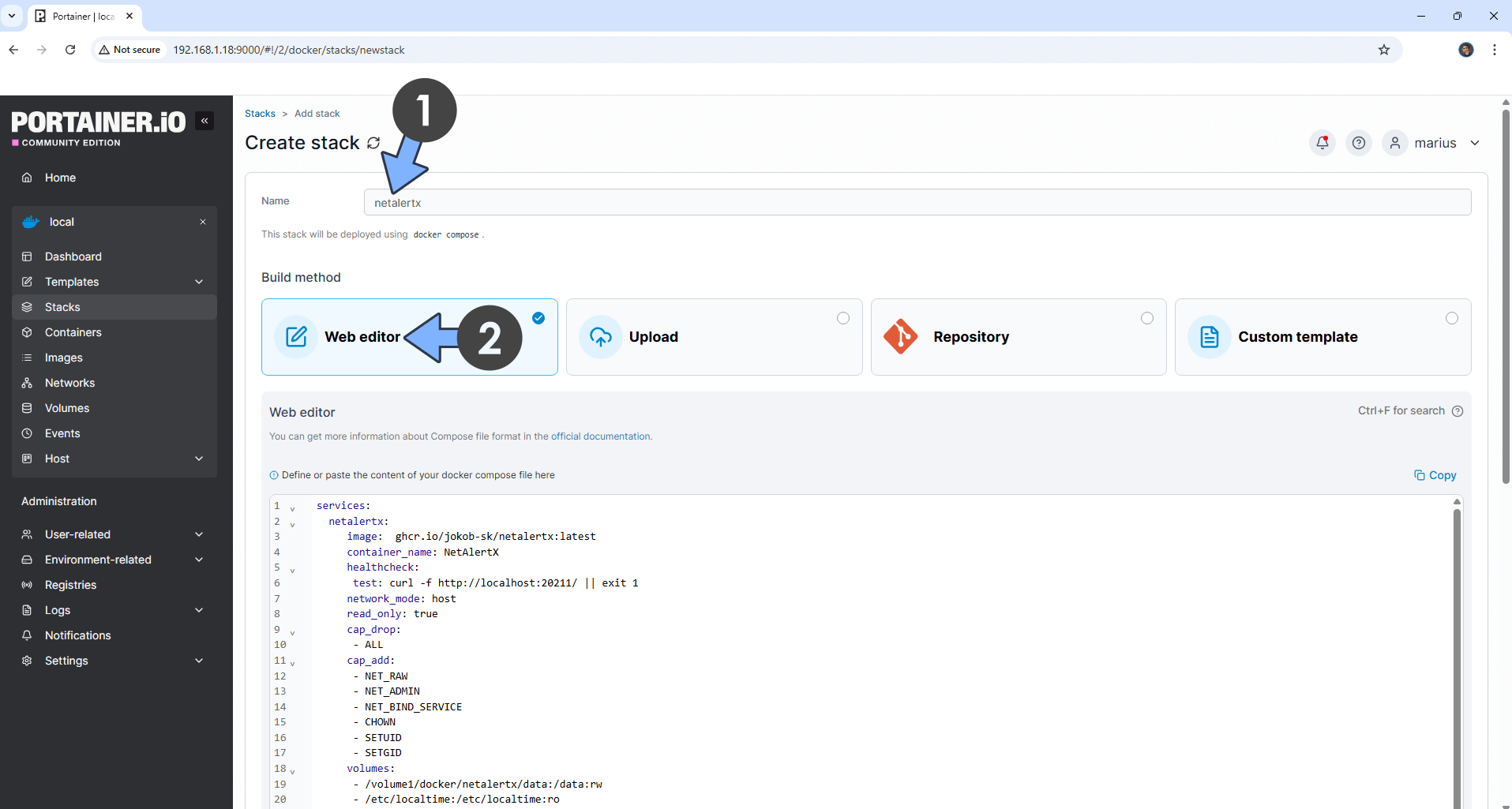
STEP 8
Scroll down on the page until you see a button named Deploy the stack. Click on it. Follow the instructions in the image below. The installation process can take up to a few minutes. It will depend on your Internet speed connection.
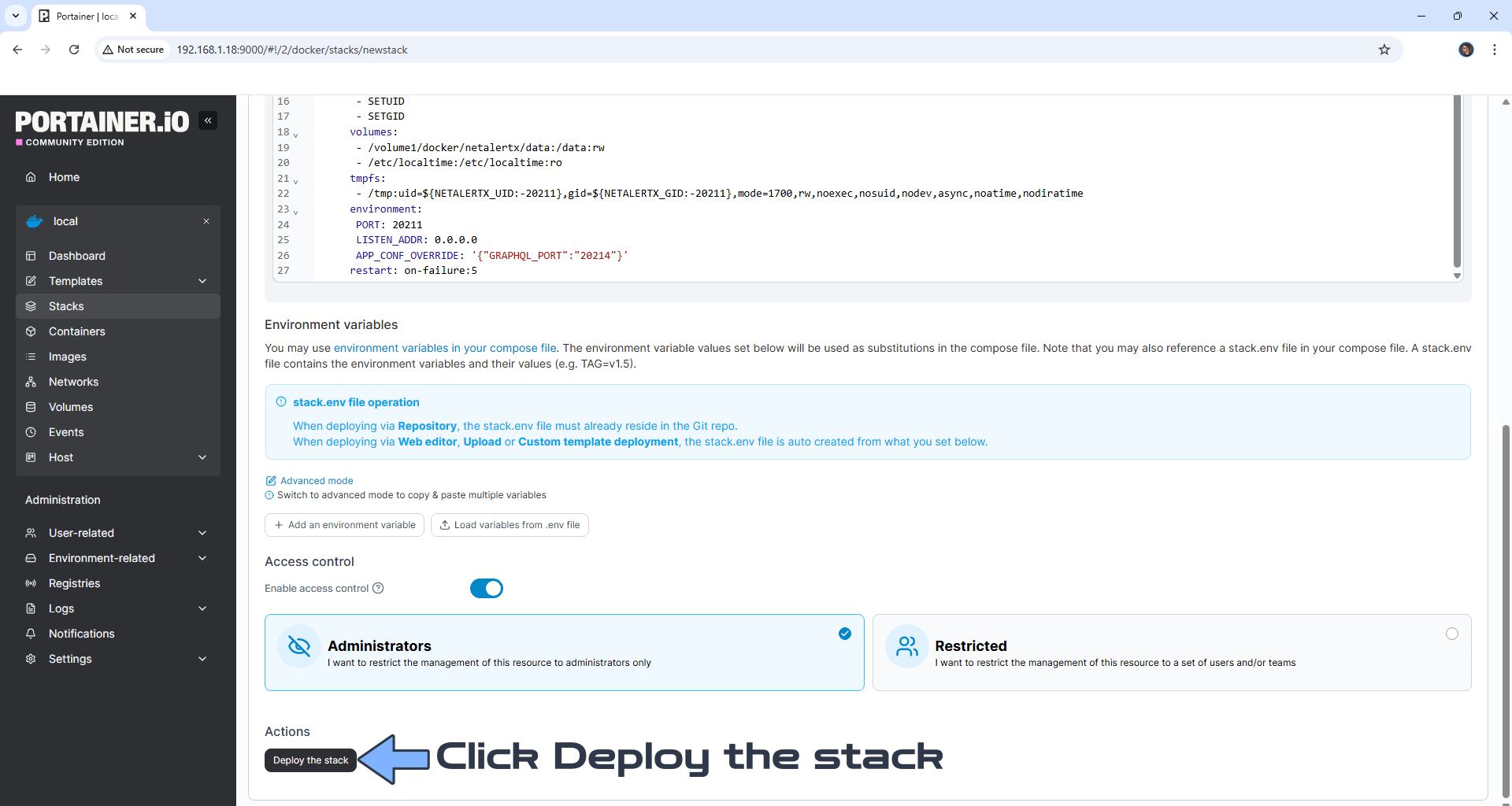
STEP 9
If everything goes right, you will see the following message at the top right of your screen: “Success Stack successfully deployed“.

STEP 10
🟢Please Support My work by Making a Donation. Almost 99,9% of the people that install something using my guides forget to support my work, or just ignore STEP 1. I’ve been very honest about this aspect of my work since the beginning: I don’t run any ADS, I don’t require subscriptions, paid or otherwise, I don’t collect IPs, emails, and I don’t have any referral links from Amazon or other merchants. I also don’t have any POP-UPs or COOKIES. I have repeatedly been told over the years how much I have contributed to the community. It’s something I love doing and have been honest about my passion since the beginning. But I also Need The Community to Support me Back to be able to continue doing this work.
STEP 11
The installation process can take up to a few seconds/minutes. It will depend on your Internet speed connection. Now open your browser and type in http://Synology-ip-address:20211 It will take a few minutes for NetAlertX to scan your entire network.💡Note: On the left sidebar, you can click on Settings and you can add a different Subnet to scan.
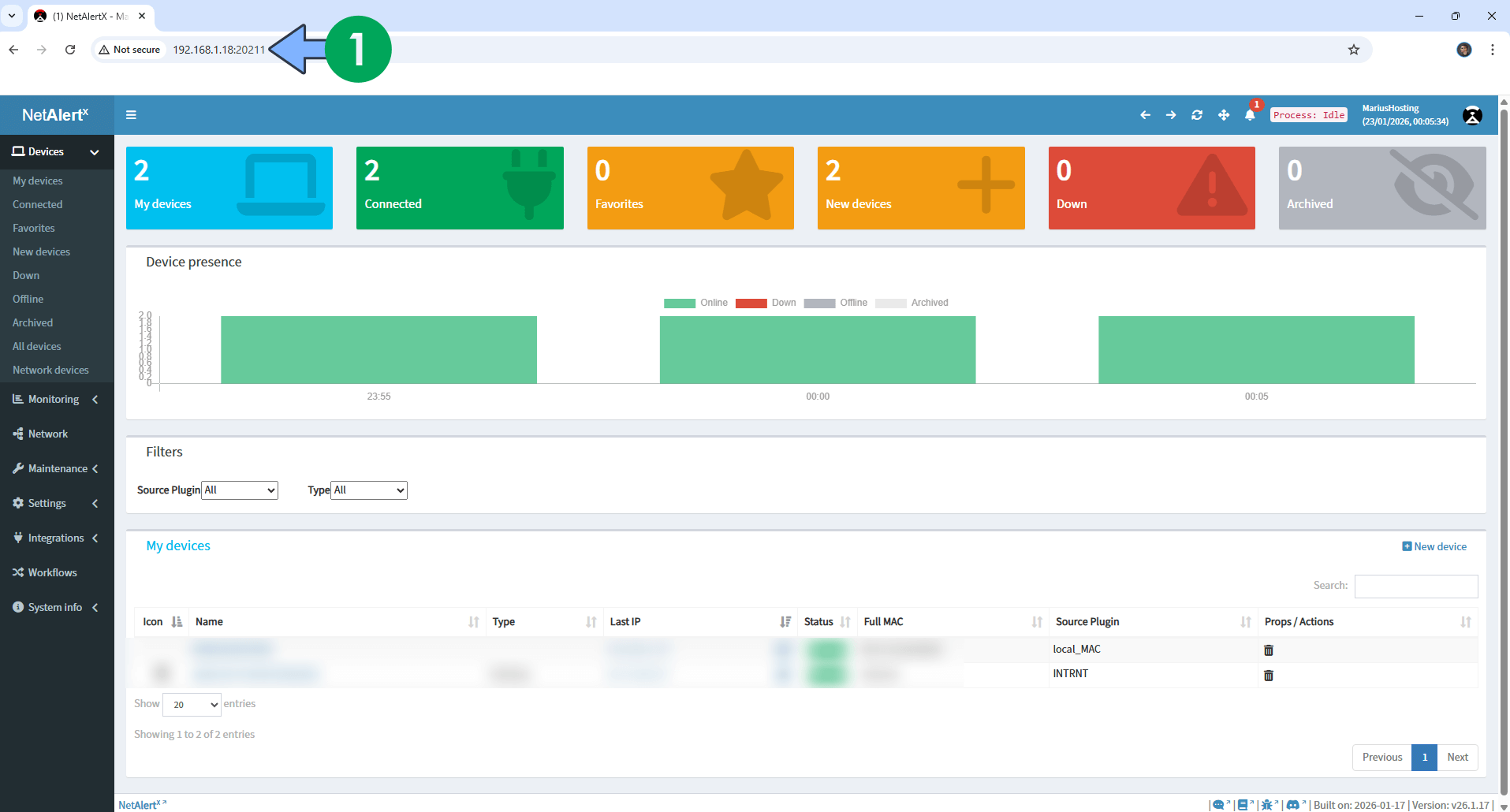
STEP 12
Protect your NetAlertX instance via password. On the left sidebar click on Settings then System. Click Set password. Follow the instructions in the image below.
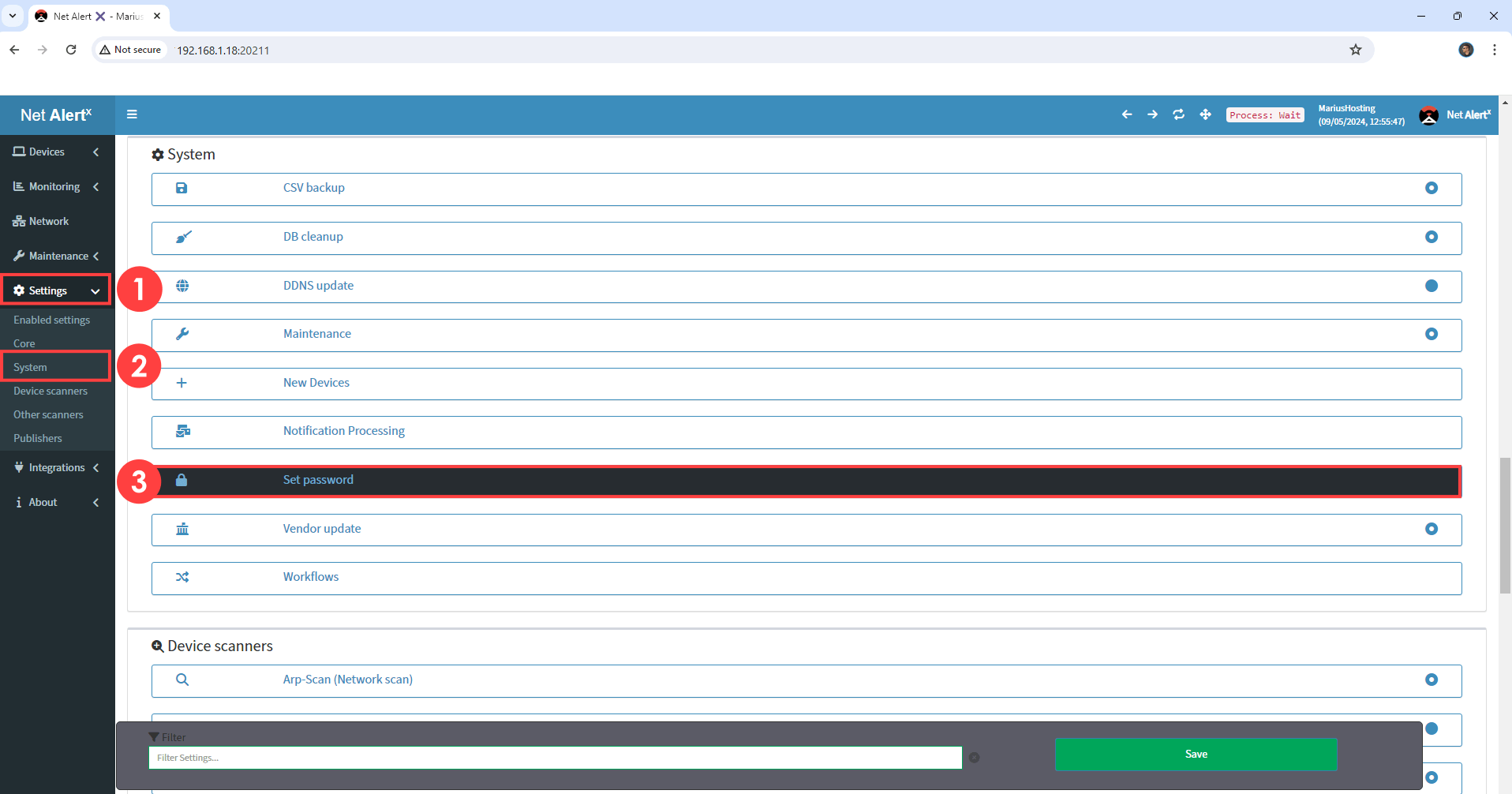
STEP 13
Check the Enable login option, then type in your own Password. Click Save. Follow the instructions in the image below.
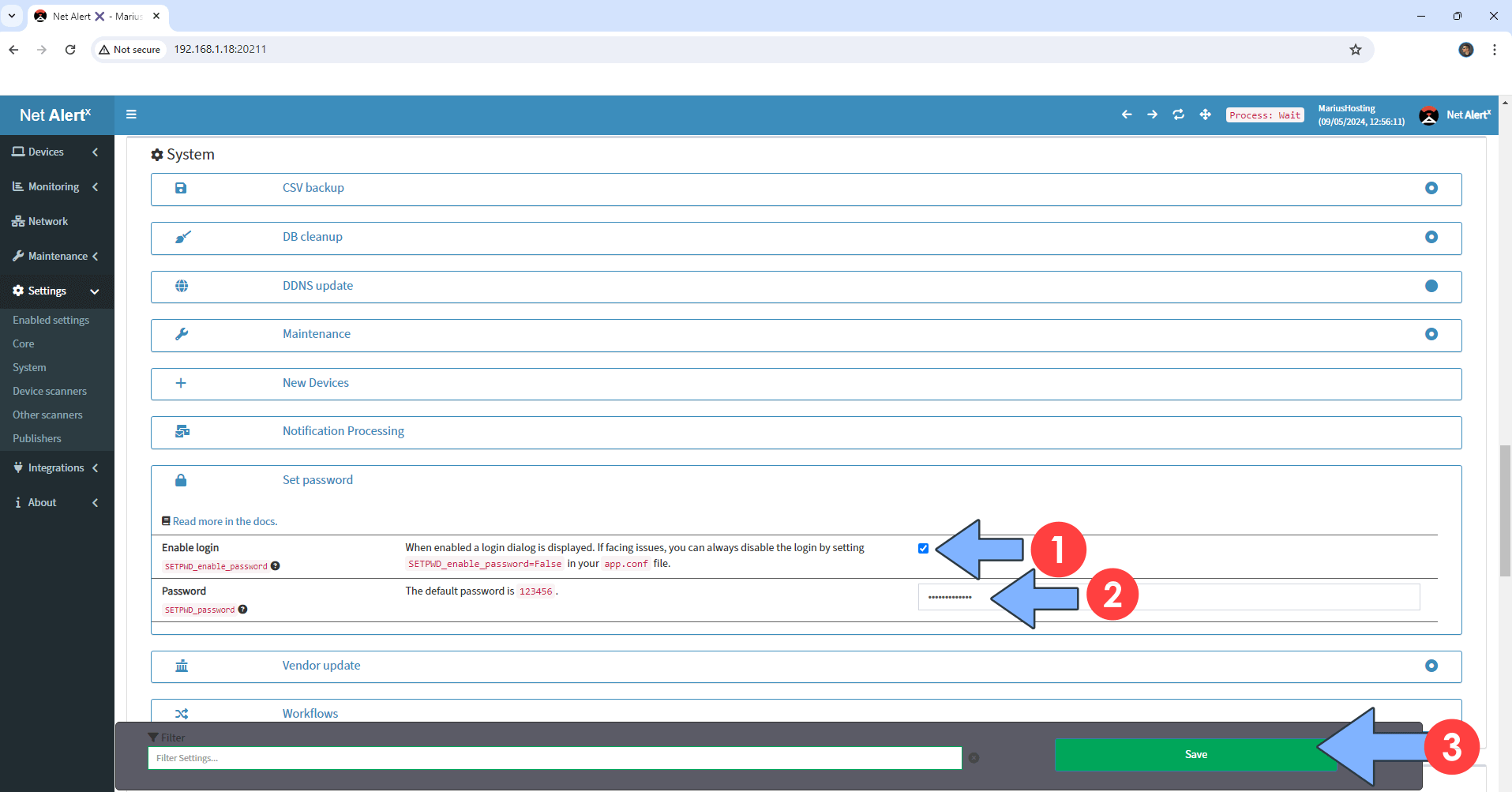
STEP 14
Wait until importing the settings and plugins is finalized. Follow the instructions in the image below.
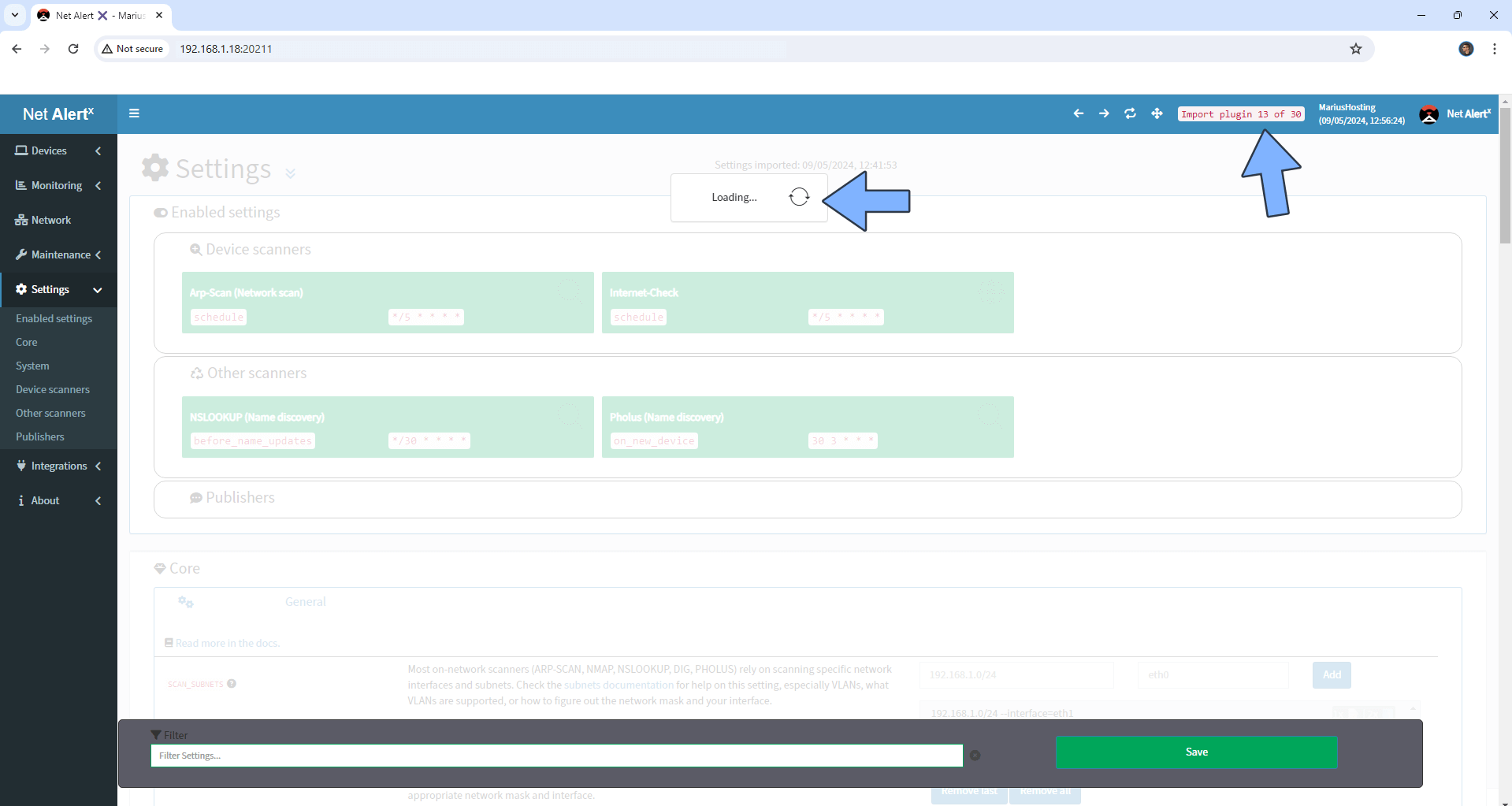
STEP 15
At the top right of the page, click the NetAlertx icon then Sign out. Follow the instructions in the image below.
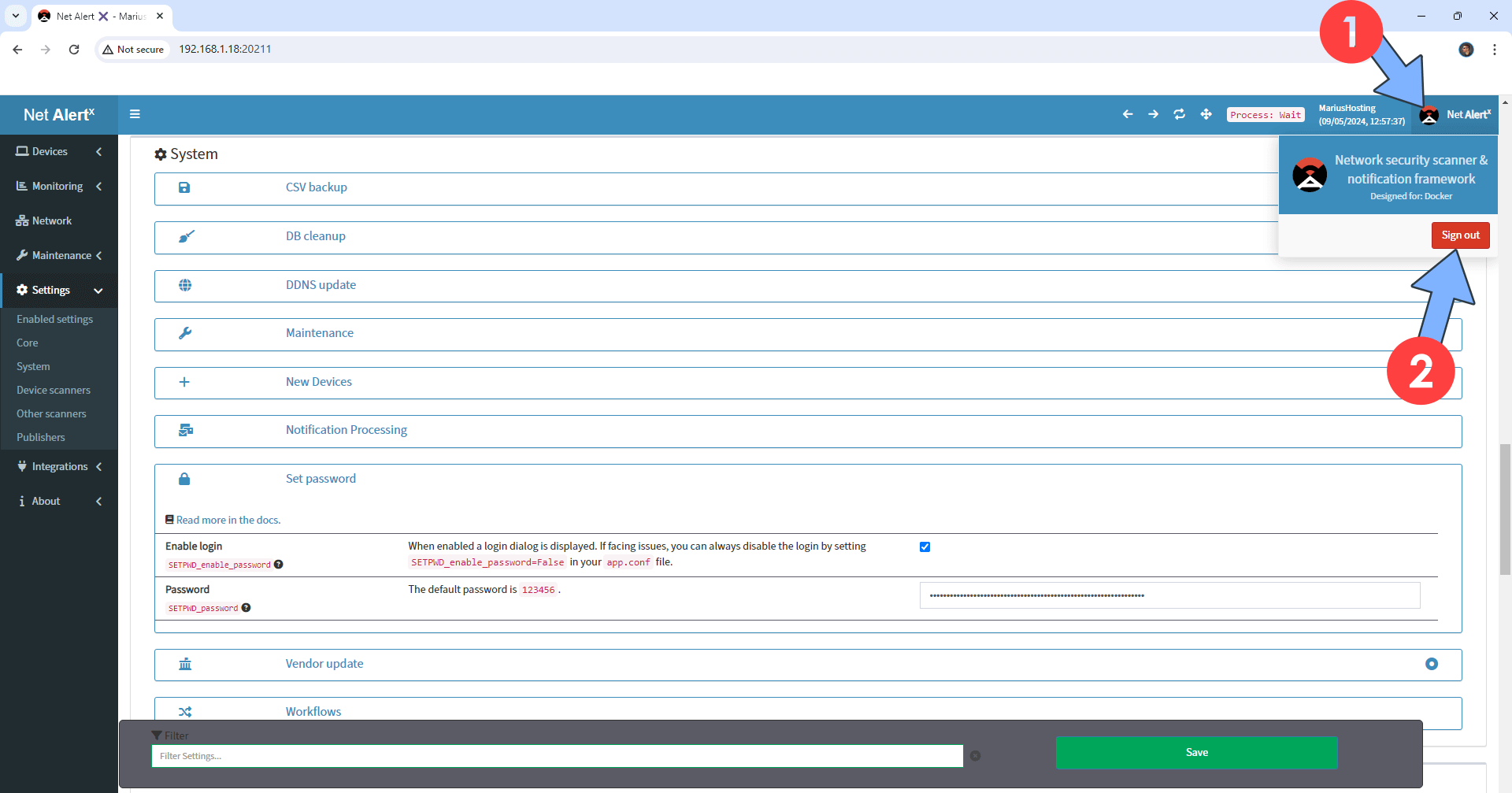
STEP 16
Now open your browser and type in http://Synology-ip-address:20211 You will be asked to enter your password. Type in the password that you have previously created at STEP 13, then click Log in. Follow the instructions in the image below.
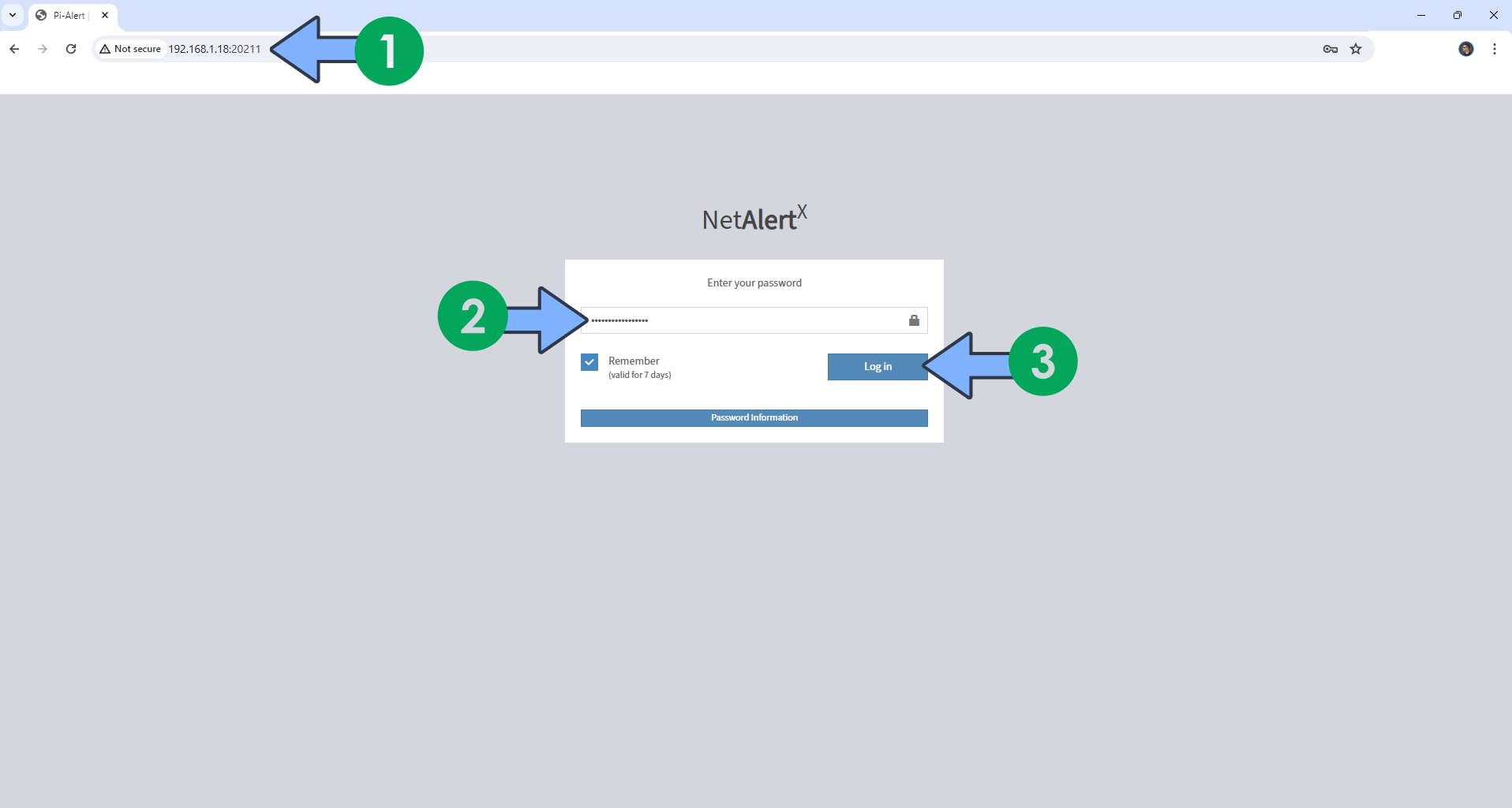
STEP 17
If you want to change the NetAlertX theme to Dark Mode, click Settings then Core. Scroll down the page until you find the UI Settings. Switch the theme from Light to Dark. Click Save. Follow the instructions in the image below.
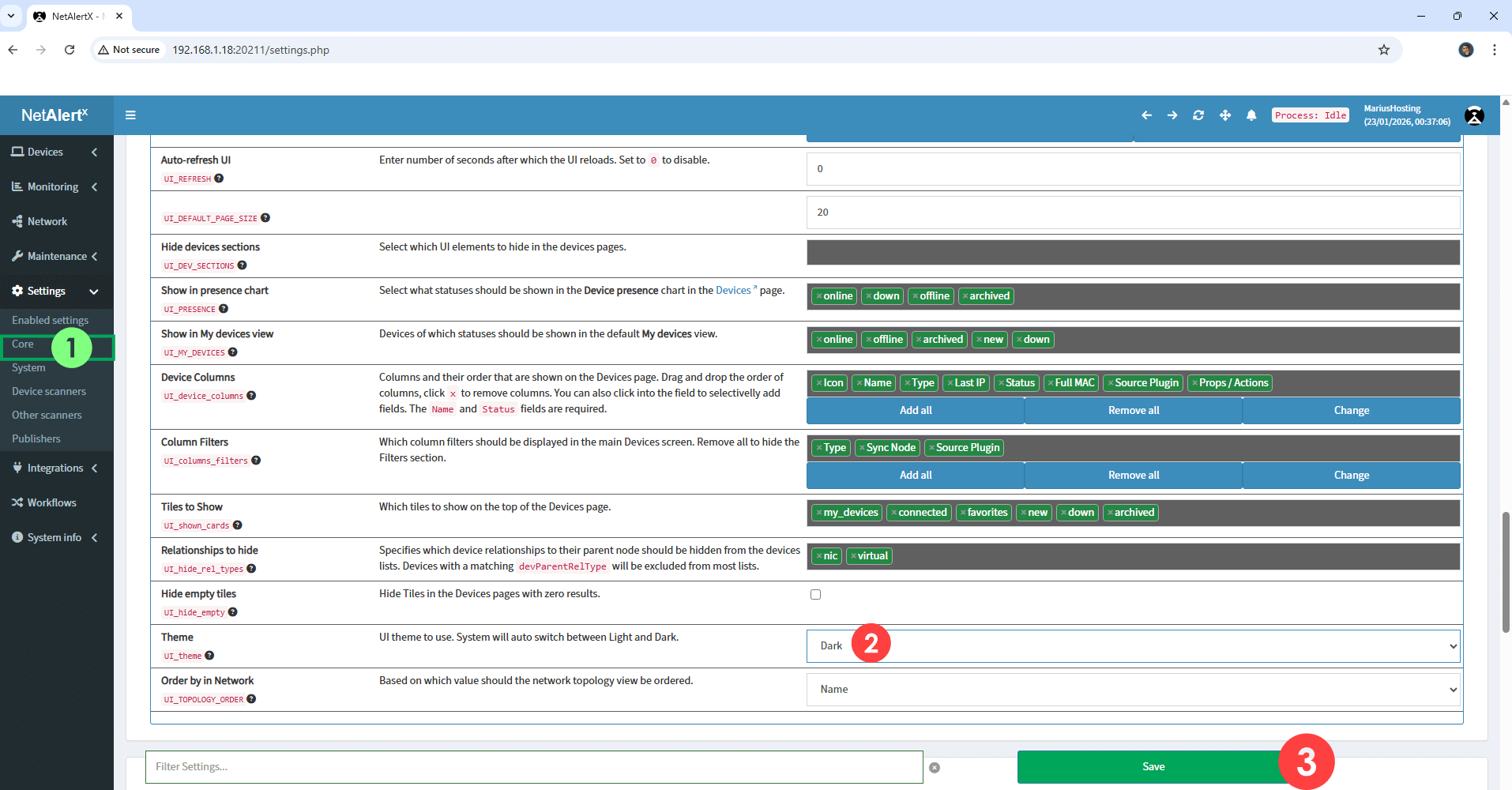
STEP 18
Your NetAlertX dashboard at a glance!
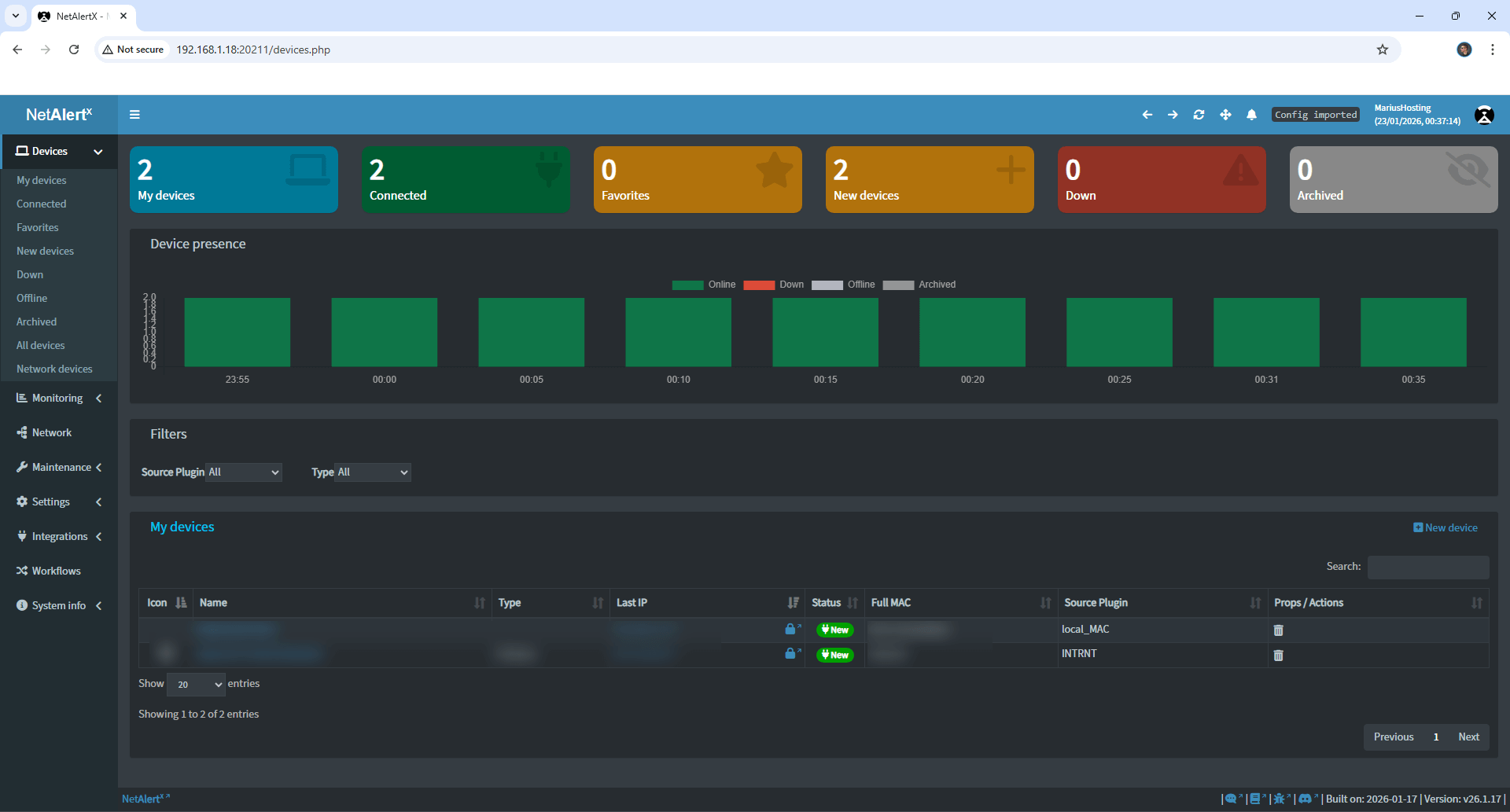
STEP 19
Enable email notifications on NetAlertX.
Enjoy NetAlertX!
If you encounter issues by using this container, make sure to check out the Common Docker issues article.
Note: If you want to run the NetAlertX container over HTTPS, check How to Run Docker Containers Over HTTPS. In order to make NetAlertX work over https, it’s also mandatory to set up WebSocket.
Note: Can I run Docker on my Synology NAS? See the supported models.
Note: How to Back Up Docker Containers on your Synology NAS.
Note: Find out how to update the NetAlertX container with the latest image.
Note: How to Free Disk Space on Your NAS if You Run Docker.
Note: How to Schedule Start & Stop For Docker Containers.
Note: How to Activate Email Notifications.
Note: How to Add Access Control Profile on Your NAS.
Note: How to Change Docker Containers Restart Policy.
Note: How to Use Docker Containers With VPN.
Note: Convert Docker Run Into Docker Compose.
Note: How to Clean Docker.
Note: How to Clean Docker Automatically.
Note: Best Practices When Using Docker and DDNS.
Note: Some Docker Containers Need WebSocket.
Note: Find out the Best NAS Models For Docker.
Note: Activate Gmail SMTP For Docker Containers.
This post was updated on Wednesday / January 28th, 2026 at 12:01 AM
